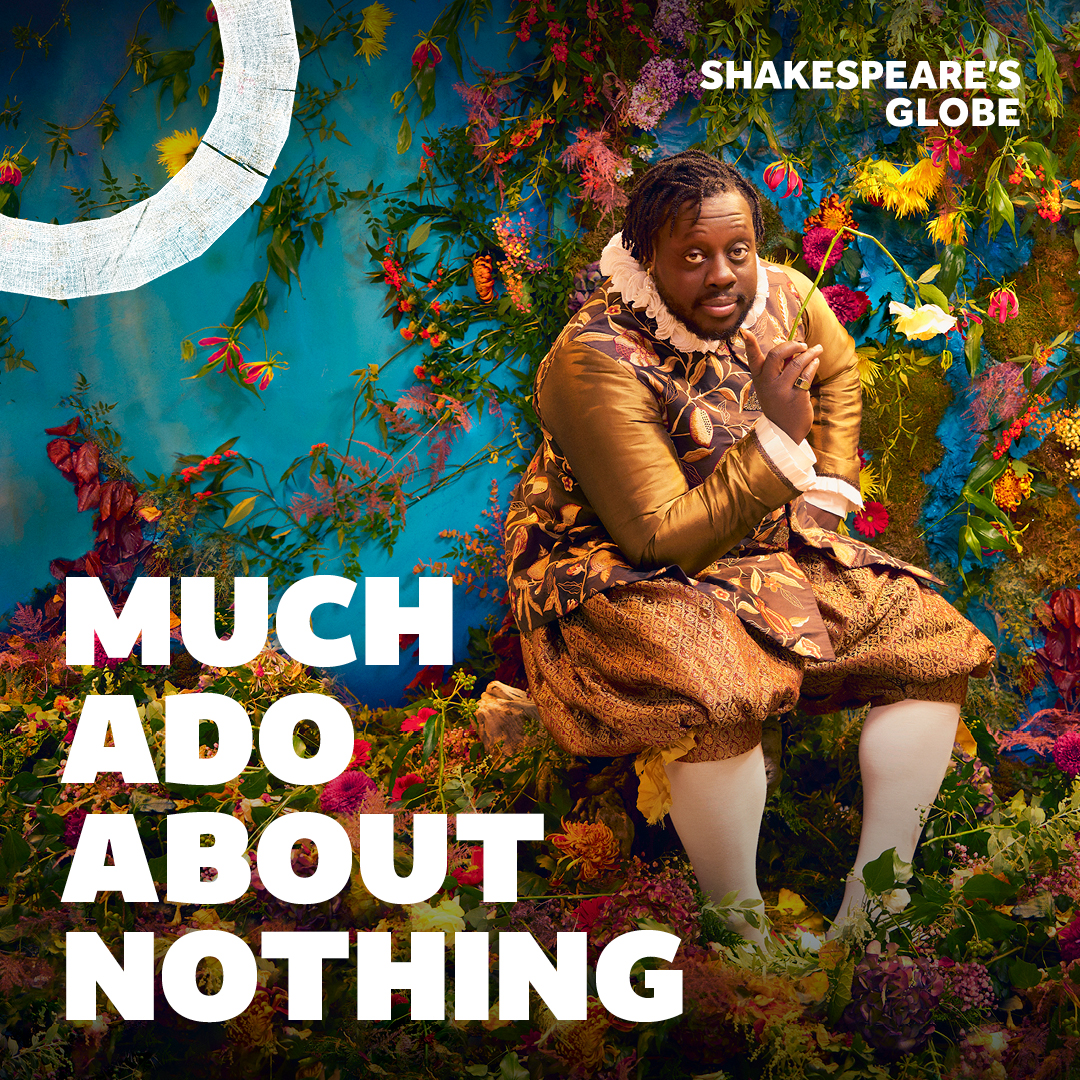Comic barbs fly between Benedick and Beatrice in Shakespeare’s Globe’s contemporary version of Much Ado About Nothing, which handles the fine line between comedy and tragedy with aplomb.

Much Ado About Nothing | Shakespeare’s Globe | Reviewed by Paul Knowles and Sam Cassells
On a blazing day, in mid-August, we found ourselves in the hallowed rafters of Shakespeare’s Globe, holding our sides with laughter at the comic interplay between Beatrice (Amalia Vitale) and Benedick (Ekow Quartey) who find the very idea of marriage repugnant. Only a love-struck fool would willingly condemn themselves to the tragedy of holy matrimony, according to this well-matched-pair of leads — who both displayed deft comic timing and a wonderful flair for physical comedy in the plays earlier comic scenes.
The biggest strength and surprise of Shakespeare’s Globe’s production of Much Ado About Nothing was the way it handled the tragic elements of the play. We were moved by the unexpected depth of raw emotion that both leads display towards the falsely accused Hero (Lydia Fleming) — Fleming produced a performance of powerful and refined dignity as the slandered Hero. The tragic subplot of Much Ado About Nothing (that engages with false accusations, unjust slandering and the tragic consequences of these dishonest claims) rings a powerful contemporary note. Especially in the current celebrity-culture that displays a greater awareness of stars’ mental health; with audiences having a deeper understanding of the tragic deaths of celebrities caused by their false vilifying in the press and over social media. The tragedy of false defaming is captured in the standout performance of John Lightbody as Leonato; he captured a father’s unspeakable grief at his daughter’s unjust death. This production of Much Ado About Nothing, and its handling of the play’s tragic subplot, encapsulates how Shakespeare’s work still resonates with contemporary world issues.
A strong ensemble cast across the entirety of the play’s roles is a major strength of the production; minor parts were handled with confidence and gusto. A special mention needs to go to the delightful Machiavellian performance of Robert Mountford who captures the glee of Don John wreaking havoc on his brother’s court. Also, the excellent Jonnie Broadbent needs to be applauded for the superb foolish flourishes he gave to the Constable of the Watch in his playful interactions with the audience. The music, staging and costumes are all standout elements of productions held in Shakespeare’s Globe: faithfully recreating the stagecraft and methods of the Elizabethan stage. Across the production — from the jaunty, folk music of the masquerade ball to the comic chaos of the plays final jig — the company’s musicians played with an accomplished flair and vigour and were seamlessly incorporated into the action of the play. The production’s costumes were full of the regal splendour expected of the Elizabethan age, and the entrance of Don Pedro and his company, fresh from battle, garbed in full suits-of-armour whilst being carried onto the stage as part of a military flotilla, added a sense of grandeur and scale to the production. Whilst the staging was simplistic — consisting of raised platforms, ladders, fruit crates and a bucketful of oranges — it skilfully conveyed the orange groves of Messian in Sicily, where the play is set, in a few deft strokes. In addition, the verticality of the staging allowed for clever comic clowning, panicked hiding and lots of eaves-dropping of half-heard conversations, adding another comic level to this already action-packed version of the play.
The Shakespeare’s Globe 2024 autumn season runs from September to November, and features performances of Anthony and Cleopatra, The Comedy of Errors, The Taming of the Shrew, and Princess Essex.
